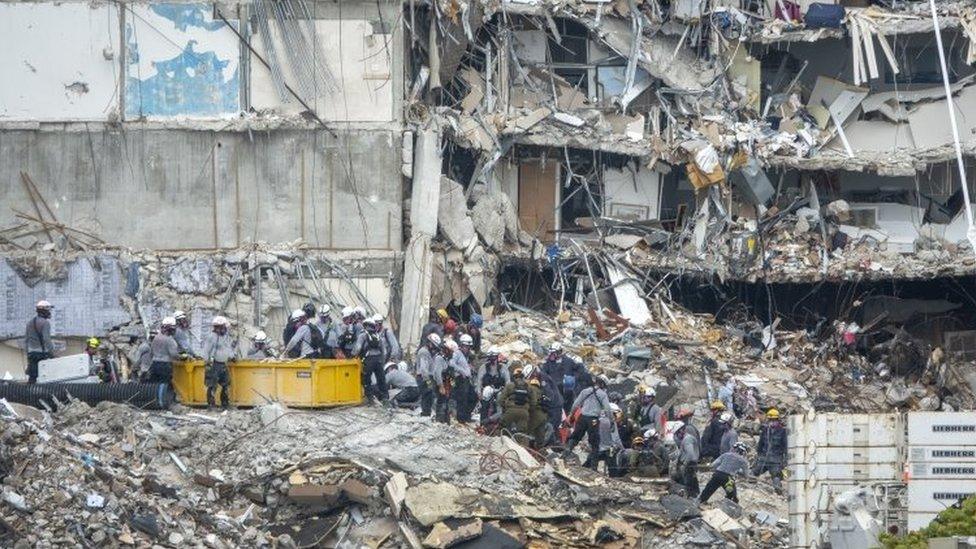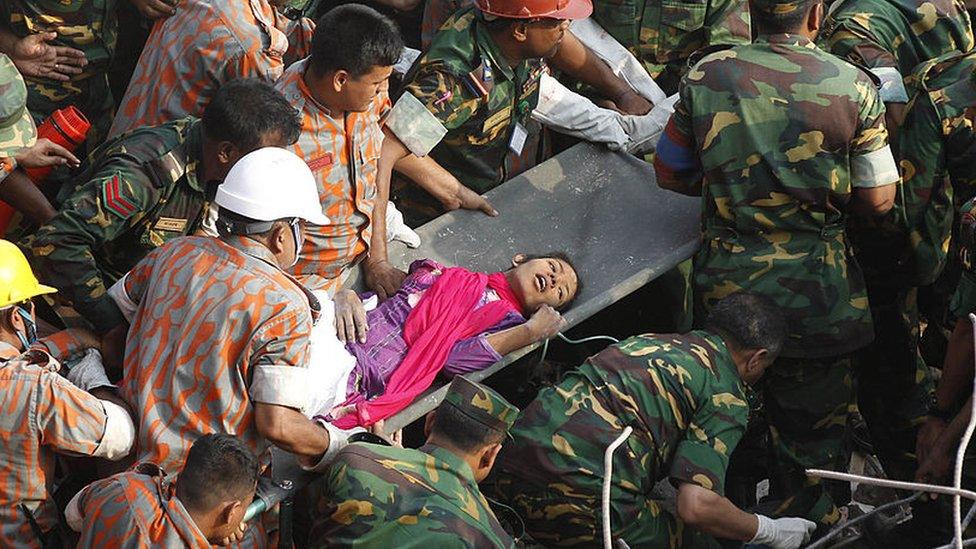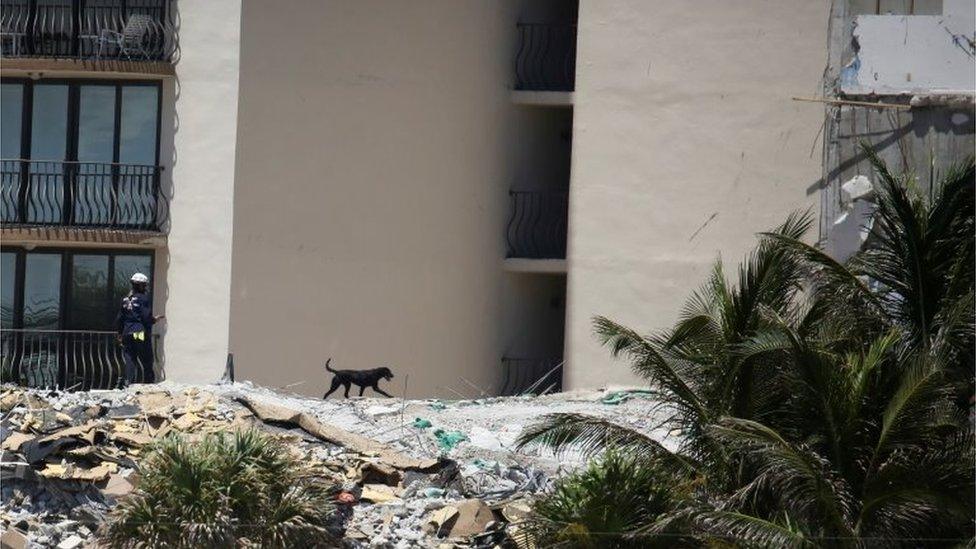How long can survivors last under rubble?
- Published

The rescuers have storeys' worth of pancaked wreckage to search through
Rescuers in the US state of Florida are continuing to look for possible survivors of a deadly apartment block collapse - nearly a week after it happened.
Emergency workers - including experts from around the world - say they are still looking for people who may be alive in air pockets beneath the wreckage.
How long have people survived?
The UN usually decides to call off search and rescue attempts between five and seven days after a disaster, once no-one has been found alive for a day or two. However, people have been known to be rescued alive beyond this point.
In May 2013 a woman was pulled from the ruins of a factory building in Bangladesh, 17 days after it collapsed. Workers heard her crying out "please save me" and used video and audio detection equipment to locate her exact position.

Reshma Begum later said she used sticks and rods to attract rescuer attention
After the Haiti earthquake in January 2010, one man survived for 12 days under the rubble of a shop, external that had been repeatedly looted. Later, another man was found alive after a reported 27 days in quake rubble, external.
What factors are important to survival?
Experts say several factors are key to survival - including water and air access.
Survival largely depends on what happens the moment the quake first hits or a building collapses - if you're trapped in an area that has some sort of oxygen supply - and water - from the outside world.
The situation is more difficult for people who find themselves injured under the rubble. Some people who have survived the initial incident, suffer from crush syndrome which renders them unable to move.
A toddler was pulled from Turkey rubble after 65 hours last year
Being trapped in a confined space also means a rising temperature and an increase in carbon dioxide, which, if it reaches too high a level, could lead to suffocation.
Some search teams try and monitor rising levels of CO2 and other technology to try and find evidence of survivors.
In September 2020 rescue teams in Beirut thought they may have found a survivor almost a month after a deadly blast but later gave up hope despite a renewed search.
If potential survivors are uninjured, have an air supply and are in an adequate space - however small - the next thing key to survival is water access.
It is difficult to say how long people can survive without hydration - some estimates suggest the average ranges between three and seven days.

Sonar technology and rescue dogs are among methods being used at Florida collapse site
A lot depends on the temperature of the area you're trapped in - which determines how much fluid you're losing through sweating - and on an individual's level of fitness.
Evans Monsignac, the man who said he survived almost four weeks in rubble in Haiti, later said he had taken to drinking sewage water.
Despite the best preparation and advice, rescuers say survival often comes down to "sheer determination".
"It's the will," Graham Payne, chairman and founder of rescue charity Rapid, previously told the BBC about the subject. "Some people just accept they are trapped and it's fate. Others just keep going."